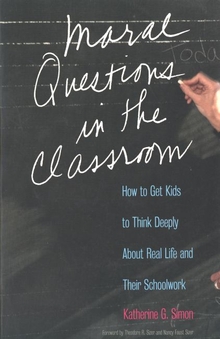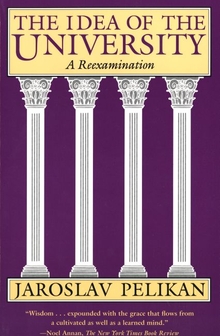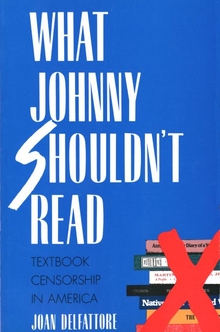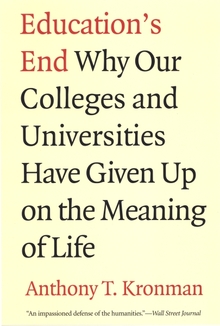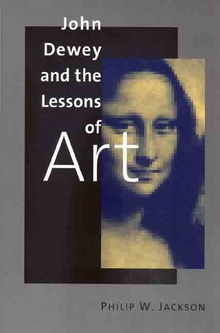Moral Questions in the Classroom
WARNING
You are viewing an older version of the Yalebooks website. Please visit out new website with more updated information and a better user experience: https://www.yalebooks.com
How to Get Kids to Think Deeply About Real Life and Their Schoolwork
Katherine G. Simon; Foreword by Theodore R. Sizer and Nancy Faust Sizer
What constitutes a just war? How does race matter in America? Are the interests of corporations the same as those of the public when it comes to the environment or public health? Middle and high school history, literature, and science classes abound with important moral, social, and political questions. But under pressure to cover required materials and out of fear of raising controversy, teachers often avoid classroom discussions of questions of profound importance to students and to society.
This book investigates how schools can responsibly take an active role in moral education while honoring their academic mission. Using extensive observations in public, Catholic, and Jewish high schools, Katherine Simon analyzes the ways in which teachers avoid or address moral questions raised by students and implicit in course materials. She examines how morally charged issues may be taught responsibly in a diverse democracy. And in an afterword that teachers and teacher educators will find particularly useful, Simon provides practical tools and strategies for structuring discussion and designing units to help teachers explore moral issues more deeply with their middle and high school students.
This book investigates how schools can responsibly take an active role in moral education while honoring their academic mission. Using extensive observations in public, Catholic, and Jewish high schools, Katherine Simon analyzes the ways in which teachers avoid or address moral questions raised by students and implicit in course materials. She examines how morally charged issues may be taught responsibly in a diverse democracy. And in an afterword that teachers and teacher educators will find particularly useful, Simon provides practical tools and strategies for structuring discussion and designing units to help teachers explore moral issues more deeply with their middle and high school students.
Katherine G. Simon, Ph.D., is co-executive director at the Coalition of Essential Schools in Oakland, California.
“Simon combines research with excellent practical examples to stimulate anyone who wants students turned on by their academic subjects yet motivated by the ethical principles and compassion needed to apply that knowledge wisely [as you and adults].”—Esther F. Schaeffer, Executive Director & CEO, Character Education Partnership
“In this age of acute political correctness, complex issues of morality tend to be leached out of the public high-school curricula. Based on her own extensive observation of classrooms, Katherine Simon makes a compelling and passionate case for the rescue and return of these issues to the classroom. With standards and tests further constricting what is taught in schools, this is a book for every educator committed to helping students expand their intellect, while grappling with the big questions of life and living.”—Patricia A. Wasley, Dean and Professor, University of Washington
“This book . . . not only indicates the direction in which we should be heading, but tells us how to get there. Kathy Simon is the wise colleague who needs to be on every curriculum committee, a frequent visitor in every classroom, a ‘critical friend’ to every principal. Thanks to this book, she will be.”—Theodore R. Sizer and Nancy Faust Sizer
“Simon’s smooth handling of how we might address morally charged questions is but one of her strengths in this provocative study. She is a brilliant storyteller, using colorful narratives to weave a compelling story that a wide audience can understand. . . . Simon’s study is important and timely as moral and existential questions are consistently swept under the current proliferating and anesthetizing wave of standardized testing. . . . A valuable addition to the moral and existential literature as it relates to the classroom.”—Adam Renner, Anthropology & Education Quarterly
“I found Simon’s book to be lively, persuasive, insightful, well-argued, and impassioned—clearly a valuable contribution to the field.”—David Purpel, American Journal of Education
“[A] particularly timely book.”—Booklist
“[A] provocative and fascinating book. . . . If you want to jump start the way you think about your discipline, read it. If you are eager to see the ‘teachable moments’ in your school differently, read it. And lastly, if you appreciate but aren’t sure what to do with the hard questions that come from our students, read it. Moral Questions in the Classroom will help you hear them better.”—Ted Graf, Horace: The Journal of the Coalition of Essential Schools
“The book makes a valuable contribution to our knowledge of how teachers can and are currently treating moral questions in regular academic instruction.”—Darcia Narvaez, Journal of Moral Education
“The book makes a valuable contribution to our knowledge of how teachers can and are currently treating moral questions in regular academic instruction.”—Darcia Narvaez, Journal of Moral Education
“What ‘matters’ to Simon is the integration of moral and existential inquiry into the classroom; she argues that not only are moral and existential questions at the heart of the major disciplines, they are also extremely compelling to students. . . . Simon writes fluently, integrating transcripts of classroom discussions smoothly into her narrative and engagingly conveying her idealist’s passion for reform.”—Publishers Weekly
“Simon’s book is welcome both for its directness and its care in trying to understand what can be done to introduce moral and existential deliberation into the public school instructional process.”—David Labaree, Michigan State University
Winner of the 2002 Educator’s Award given by The Delta Kappa Gamma Society International
Selected as one of four outstanding books in curriculum for 2001-2002 by Division B (Curriculum) Book Forum Committee of the American Educational Research Association
Finalist for the 2001-02 National Jewish Book Award
ISBN: 9780300101683
Publication Date: August 11, 2003
Publication Date: August 11, 2003
304 pages, 6 x 9

